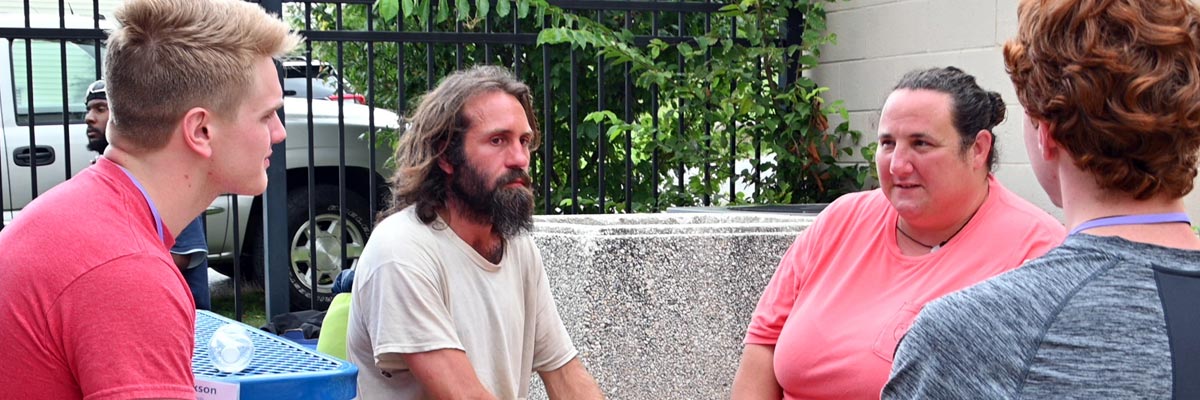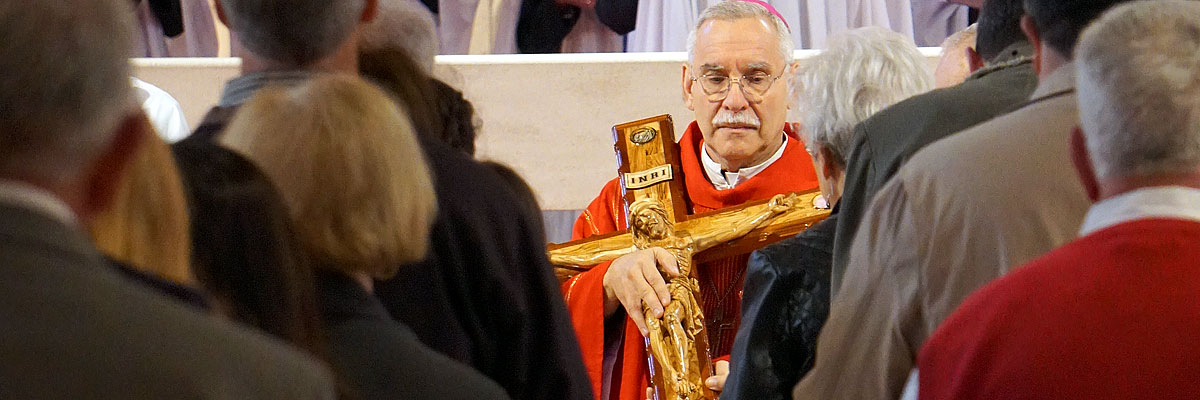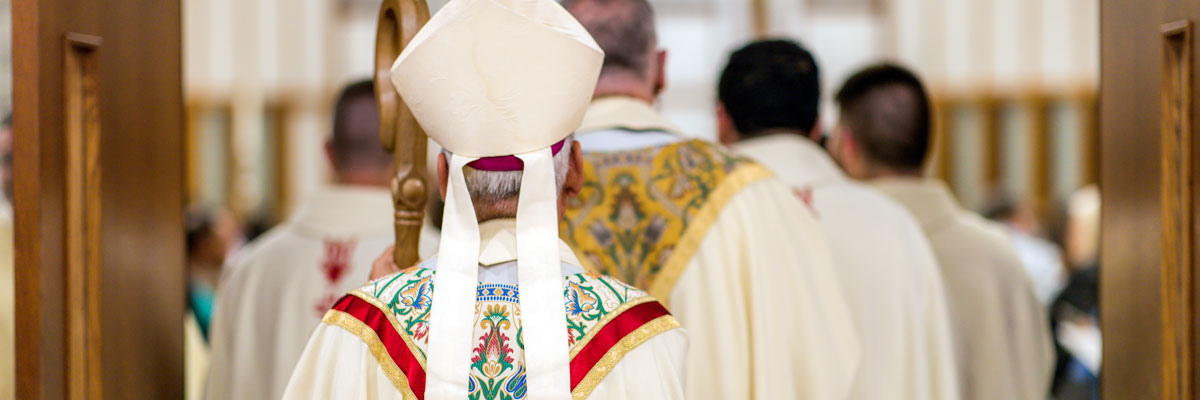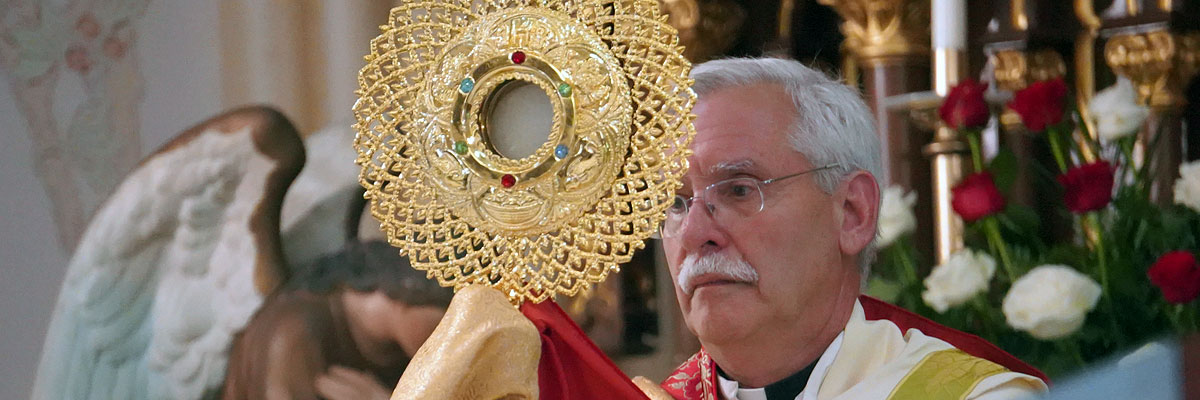Official Website of the
Catholic Diocese of Little Rock
Solemnity of Mary, Mother of God 2020
Published: January 1, 2021
Bishop Anthony B. Taylor preached the following homily during a Mass with his family in Ponca City, Oklahoma on Friday, Jan. 1, 2021.

Bishop Taylor
The saying, "Cleanliness is next to Godliness" is about as big a lie as you'll ever hear. Cleanliness has nothing to do with Godliness. You'd be a lot closer to the truth if you said: "Dirtiness is next to Godliness." Kids know this instinctively. Dirt and germs are everywhere and both are necessary for life, and God is life.
Seeds have to be planted in the dirt, fertile soil is full of germs, and manure makes it even better. Dirt is the source of a plant's life and growth. Plant seeds in sterile, microbe free soil and nothing happens.
Jesus was born into the dirtiest environment imaginable and the first to believe were filthy shepherds. Consider the circumstances of Jesus' birth. Joseph and Mary — exhausted and probably dirty — end up in a stable full of camels, donkeys and livestock. There was no lighting, no running water and plenty of manure.
I hope that every one of us can discover and take ownership for those areas of our lives where we know we're not clean, because we all have them. Things of which we're not proud and for which we know we need a savior, areas of weakness that have the potential for great spiritual fertility because it's precisely where we're weakest that God's grace can do the most good.
It was there, under the most unsanitary conditions imaginable, that our Savior was born to Mary, the Mother of God, whose feast we celebrate today. That night dirtiness had a lot to do with Godliness.
The same is true regarding the shepherds. They were dirty people who lived outdoors, never bathed or washed their cloths and were widely suspected of immoral behavior. Living in the fields, they were not able to have a normal family life. And yet it was precisely to them that the angel appeared with tidings of great joy. They went with haste to Bethlehem, meaning they probably didn't take time to wash up.
So they blended in nicely with the dirt and smells of the stable. Notice to whom the angels did not appear: the clean, righteous people. Joseph had already gone door to door to the clean people's houses, but none of them would make room in their life for an exhausted teenager who was great with child. Those clean, proper people proved to be spiritually sterile. Their cleanliness had nothing to do with Godliness and everything to do with selfishness.
In the course of this new year I hope that every one of us can discover and take ownership for those areas of our lives where we know we're not clean, because we all have them. Things of which we're not proud and for which we know we need a savior, areas of weakness that have the potential for great spiritual fertility because it's precisely where we're weakest that God's grace can do the most good.
The word, "human: comes from "humus", meaning dirt, fertile soil, which is what we are: "Remember that you are dust and to dust you shall return." You and I are not angels, we're earthy sinners— and so the Savior God sent us was not an angel either. Jesus took on everything that it means to be human in order to redeem us from the sterile selfishness of the evils that hold us bound.
And so I wish you an especially dirty year. A year in which you will take fuller ownership of your own brokenness and your consequent need for a savior. A year in which you will come to know Jesus more intimately in the honest messiness of life.
A year in which you discover how much you have in common with all the other needy people of this world. A year in which you more fully model yourself on Jesus, who humbled himself to take on our broken human condition. A year in which you discover that dirtiness is next to Godliness!









